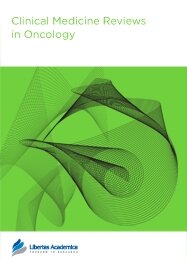

Publication Date: 24 May 2010
Type: Review
Journal: Clinical Medicine Reviews in Oncology
Citation: Clinical Medicine Reviews in Oncology 2010:2
doi: 10.4137/CMRO.S3276

Non-small cell lung cancer (NSCLC) presents one of the greatest clinical challenges in oncology. The prevalence of cigarette smoking is the major cause for the high incidence that makes NSCLC the commonest cause of cancer-related death in the western world. Patients frequently present late, with locally advanced or metastatic disease. In this often incurable situation, treatment is delivered with the aim of maximising quality and duration of life. The chosen therapy should, therefore, carry the lowest risk of side-effects in order to maximise clinical benefit. Conventional chemotherapy is typically associated with a long list of possible side effects that may be at best inconvenient, and at worst, dangerous. This group of patients, who may be frail from advanced age, advanced disease stage or additional co-morbidities, would clearly benefit from less toxic but equally effective therapies. Targeted therapeutic agents that inhibit key cell signalling pathways such as the epidermal growth factor receptor (EGFR) have been developed over the last 15 years and have demonstrated proof of principle in clinical trials. The small molecule tyrosine kinase (TK) inhibitors, such as gefitinib, are now established as particularly effective first-line therapy in the subgroup of NSCLC patients whose tumours display EGFR TK mutations that confer sensitivity. Gefitinib has been shown to be non-inferior to docetaxel in second-line therapy, and to have a better side effect profile and more rapid improvement in quality of life than chemotherapy, particularly in patients over 70 years. The publication of landmark studies and consequent changes in licensing have made 2009 the most significant year for gefitinib to date, and we describe the most recent data in the context of relevant translational research.
gefitinib, lung cancer, metastatic, advanced, tyrosine kinase inhibitor, epidermal growth factor receptor
RIS citation (ENDNOTE, REFERENCE MANAGER, PROCITE, REFWORKS)
BibTex citation (BIBDESK, LATEX)

I was requested to contribute a review. The objectives, timelines and process were all extremely reasonable and fit in well with my knowledge base and my work as well as my schedule. The process was quite seamless and no paper was ever exchanged--everything was completed on-line. Thanks for the opportunity to make this contribution.
Facebook Google+ Twitter
Pinterest Tumblr YouTube